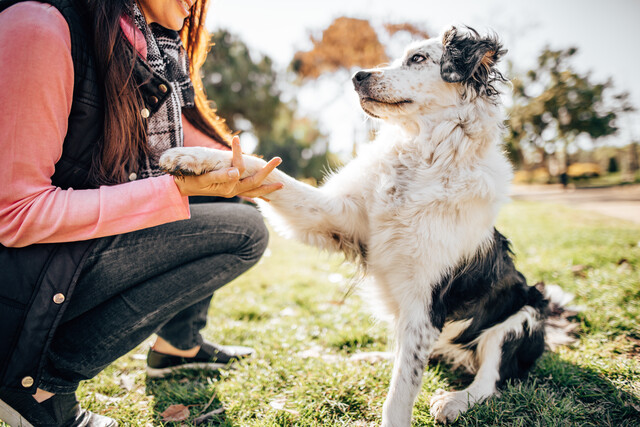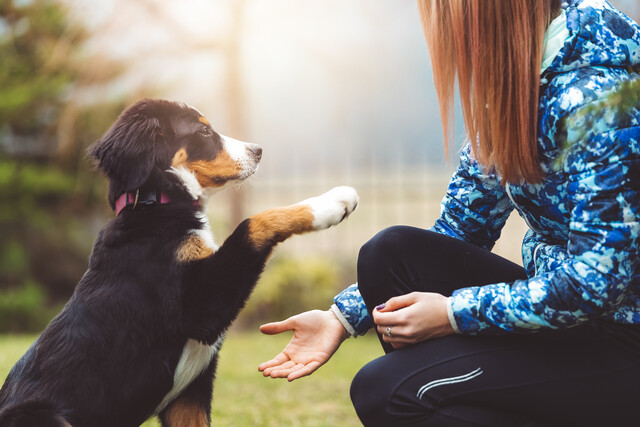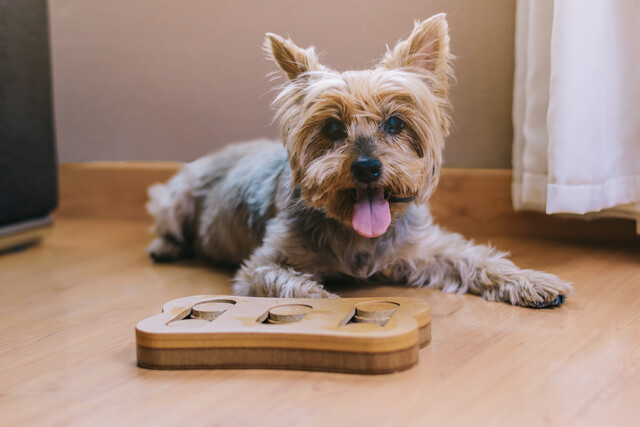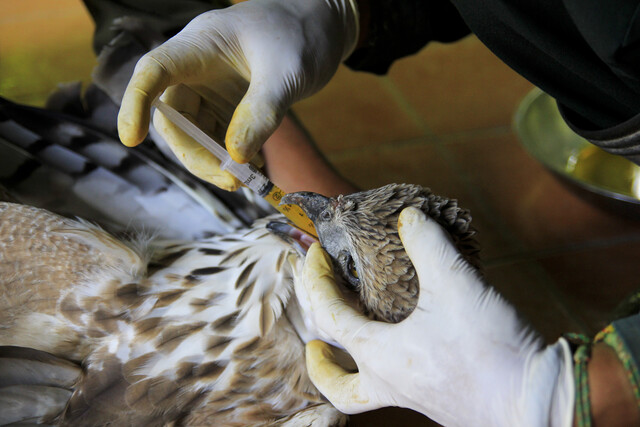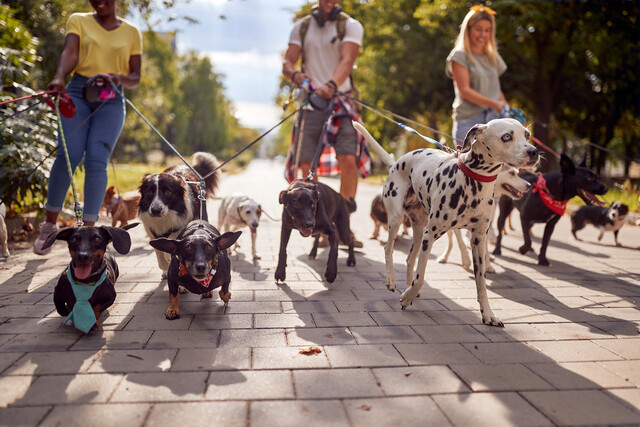Family Members Getting the Dog?
Now that you have established your reasons for getting a dog as well as some of the practical considerations for doing so, it's time to consider other family members. If you live on your own (and intend to do so for the foreseeable future), you have much more freedom when it comes to selecting the right dog. If you have a family, plan to have one soon, share your home with others, or frequently have guests and visitors, you will want to consider if their needs as well as your own.
Age
We all know how incredibly fragile life can be for very young children. We make sure our infants are in car seats, our toddlers don't have access to household chemicals, our elementary age children wear helmets when they ride their bikes, and so on. Any number of factors can contribute to a child's health, safety, and overall well-being. Having a dog should never be taken lightly, especially when you have younger children or babies in the home.
Now, this doesn't mean that you can't get a dog when you have young children, it only means that you need to consider the ability of your children to understand how to act towards the dog. Some breeds have much more patience with minor hair pulling and other irritating behaviors that children may perform. Moreover, any breed of dog can be safe if it is trained in a loving environment. Lastly, babies and toddlers should not be left alone with any dog, regardless of how loving and gentle they are, simply because children this age shouldn't be left alone with anyone or anything that has a life of its own!
Another element to consider when you have young children is whether or not you want to get a dog who is already housebroken. During the process of housebreaking, it is quite likely that your dog will have periods where they pee and poop on your floor. Some family's are able to focus on housebreaking during times when their young children don't have access to the same area as the dog, but for other people it may be helpful to get an older dog who is trained so that you don't run the risk of your baby crawling on pee stains or trying to eat poop before you have a chance to clean it up.
Family Size
The size of your family should be considered when picking the right dog for you as well. Obviously, you only have so much space to be taken up by living things. If you have a lot of kids, you may not have a lot of extra space for a large dog. Similarly, having lots of kids around (or even kids that have their friends over a lot) often means noise, movement, and even a little roughhousing; the type of dog you get will need to be able to handle the chaos as well as not get crushed in the melee.
Another concern when it comes to the size of your family is whether or not you anticipate adding to your family. Unfortunately, a lot of dogs end up being given away or surrendered to animal shelters when their owners get pregnant or have a new baby. As an adult making a significant commitment, you should make every effort to determine whether or not you can realistically handle a dog along with any other additions to your family. While not every situation can be anticipated and sometimes difficult choices have to be made, it is your moral responsibility to be honest with yourself and make the best decision that will be fair to the dog as well as anyone else involved.
Disabilities, Illness, and Other Special Needs
When considering what type of dog to get (or whether to get a dog at all) you will most definitely need to consider whether anyone in your household or family has a disability of any kind. There are four aspects to this consideration. First, some breeds are a better fit for individuals that are disabled. In the case of mental or developmental disabilities, some breeds are more relaxed while others are a bit high strung (which may not be realistic for someone with these types of disabilities). Alternatively, for someone with physical disabilities, certain breeds are a better fit due to their energy level, intelligence, size, and so on.
Lastly, phobias and allergies, while not usually considered to be disabilities, must be considered when selecting a dog as well. Some people (adults and children alike) may have a phobia regarding a particular size or breed of dog which will obviously need to be considered. Likewise, people who are allergic to dogs may be allergic to different parts of the dog such as their saliva versus their fur; some breeds are hypoallergenic, some breeds salivate more than others, and so on. Be sure to add any relevant characteristics to your list based on these factors.
Other Pets/Livestock
In addition to the human members of your family, you'll also need to think about any other pets or animals that live where you anticipate your new dog will live. Some breeds are better than others about easily adapting to other animals, but the bigger concern will be the new dog's experiences with other animals. Dogs that have been exposed to cruelty or domineering animals may do best when they are the only animal the family has. Alternatively, dogs that have been well socialized may get along swimmingly with all kinds of other animals.
If you have livestock, consider the type of dog you are getting, whether or not the dog will likely have access to your livestock, and what effect that may have on both your dog and your livestock. For example, if you would like to get a dog to help you tend to your livestock, you will obviously want to choose a working dog such as a Border Collie or similar (which we will explore in more detail in a later lesson).
What's Your Lifestyle Like?
The lifestyle that you and your family enjoy will also play a key role in determining what type of dog is best suited for your family. Getting a dog is a massive responsibility and getting a puppy involves even more time and energy so it's critical that they are as compatible for your family as possible.
Availability
The other part of this equation is to consider how the age and ability level of different family members impacts your own schedule, availability, and flexibility. Far too many dogs are abandoned because their owner was unable to make an honest assessment about what they could and could not handle when it comes to this type of commitment.
Just because you may have a limited amount of time available for your dog does not necessarily mean you shouldn't get one. Some breeds expect and demand your attention more than others. Other aspects of your lifestyle such as the ability and desire of your family members to help provide care and attention to your dog will help determine how realistic it is for you to have one. Some families thrive on a large, bustling household with lots of kids and lots of pets and everyone gets plenty of attention. Other families who spend less time at home, have too many other obligations, or simply enjoy calm when they get home; these families may want to consider certain breeds, backgrounds, and ages of dogs that will be a better fit for them.
Remember that the age of the dog you get may dramatically change how much time and effort you have to put into their care. Just as some breeds are more energetic than others, puppies demand far more time, patience, and energy from their owners. Housebreaking, discipline, and their high energy levels will make a lot of demands on your time. Many people prefer to get a puppy as opposed to an adult dog for a number of reasons (appearance typically being a major reason for this) but an older dog may be better suited to you and your family's needs.
Flexibility
An offshoot of availability is your flexibility. In an ideal world, your dog would have the opportunity to get some exercise or short walk as well as time to relieve themselves outside during your workday. There are a number of services that will provide your dog with this care and attention; if your schedule does not permit you to go home during the day, you may want to consider other options. Hiring someone to walk your dog or let them relieve themselves (if they don't have regular access to go outdoors) may be an excellent idea for you. Alternatively, many pet care providers offer something along the lines of pet daycare where your pooch will be able to do these things as well as play and socialize with humans and other dogs.
Obviously, plenty of people do have the flexibility to accommodate for the needs of their dog. Factors such as the type of work you do, where you work and its distance from where you live, and even the nature of your relationship with your supervisor may all come into play when deciding whether or not you need to plan for outside help with your dog's on a regular basis. Again, older dogs, dogs with access to the outdoors during the day, and lower-energy breeds won't require as much accommodation on your end.
Physicality
For obvious reasons, it is absolutely imperative that you consider the physical and exercise habits of you and your family. Someone who is confined to a wheelchair is far less likely to find a high energy dog like a Jack Russell terrier to be manageable. Someone who envisions taking their dog for a 3 mile run every morning will probably find that a Maltese isn't physically capable of performing at that rate. While getting a dog may be helpful motivation to become more physically active, someone who lives a sedentary lifestyle, whether they are looking to change that or not, should not choose a breed of dog that will require radical changes to their lifestyle. Rather, a person looking for exercise motivation might find it helpful to choose a dog with a moderate amount of energy and physical ability.
Bear in mind that the breed of dog you choose is only part of this piece of the puzzle. Your geographic region, whether the dog is short or long haired, and even the dog's color may affect their ability and needs when it comes to exercise. Taking a jog each morning with a black standard poodle in Texas may be radically different than taking a jog each morning with a white standard poodle in Virginia. While choosing a dog based on their cuteness level is ill advised, this is one time where the dogs appearance may impact how appropriate of a match they are for you and your family.
Personality
A major determining factor of your lifestyle is your personality. Oftentimes, there may be excellent reasons why some people prefer certain breeds of dog. By and large, members of a breed do tend to have similar personalities to each other (although you should always consider that not every dog will be a good representation of their breed). Therefore, you will want to look for breeds that tend to have personalities that match your own. If you are laidback and want a dog who will chew a bone sitting at your feet, an attention-demanding chihuahua is unlikely to be a good match. Alternatively, someone who would prefer to cuddle on the couch and gap on a regular basis might not do well with an active, energetic dog like a German Shepherd.





